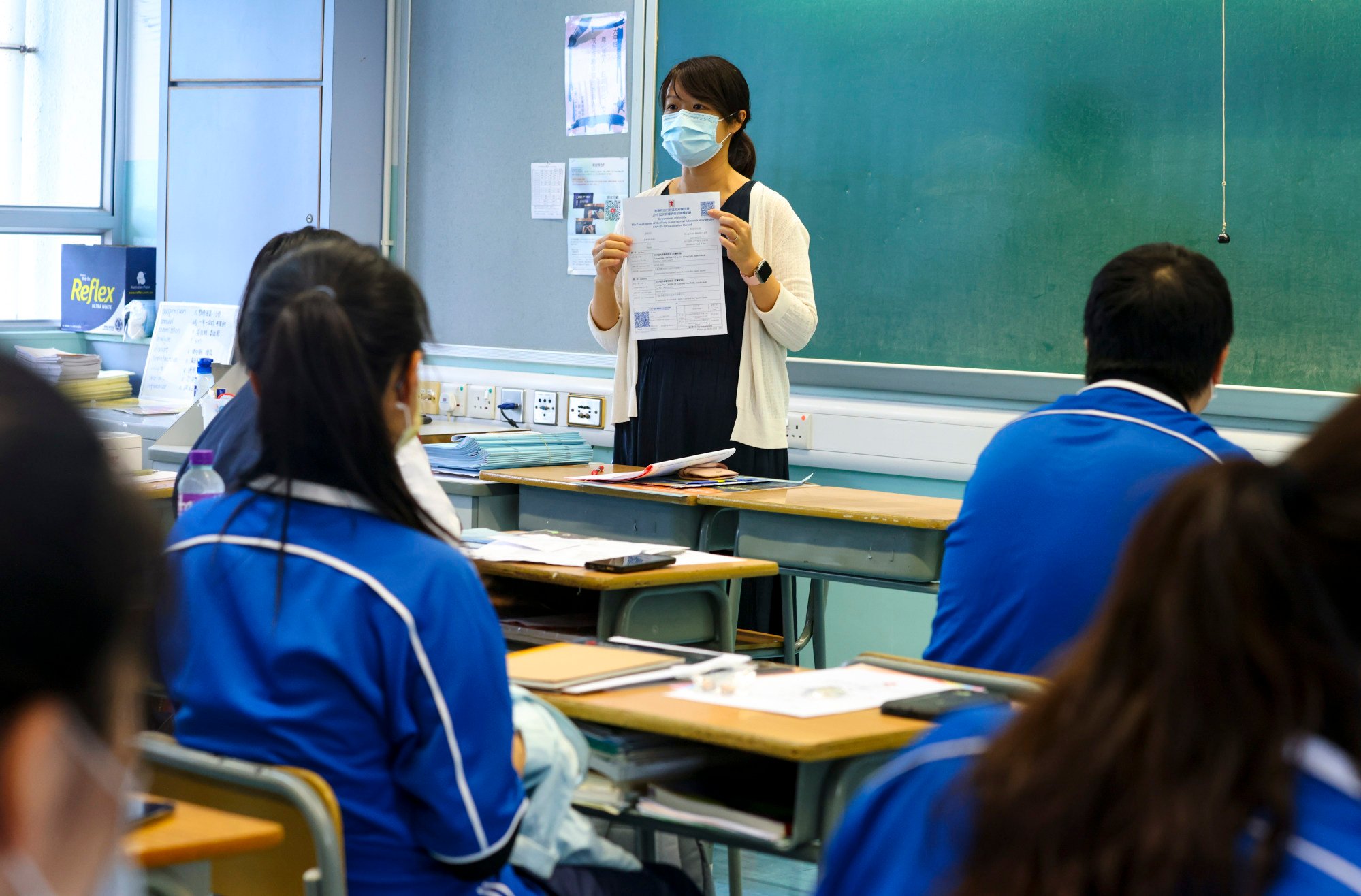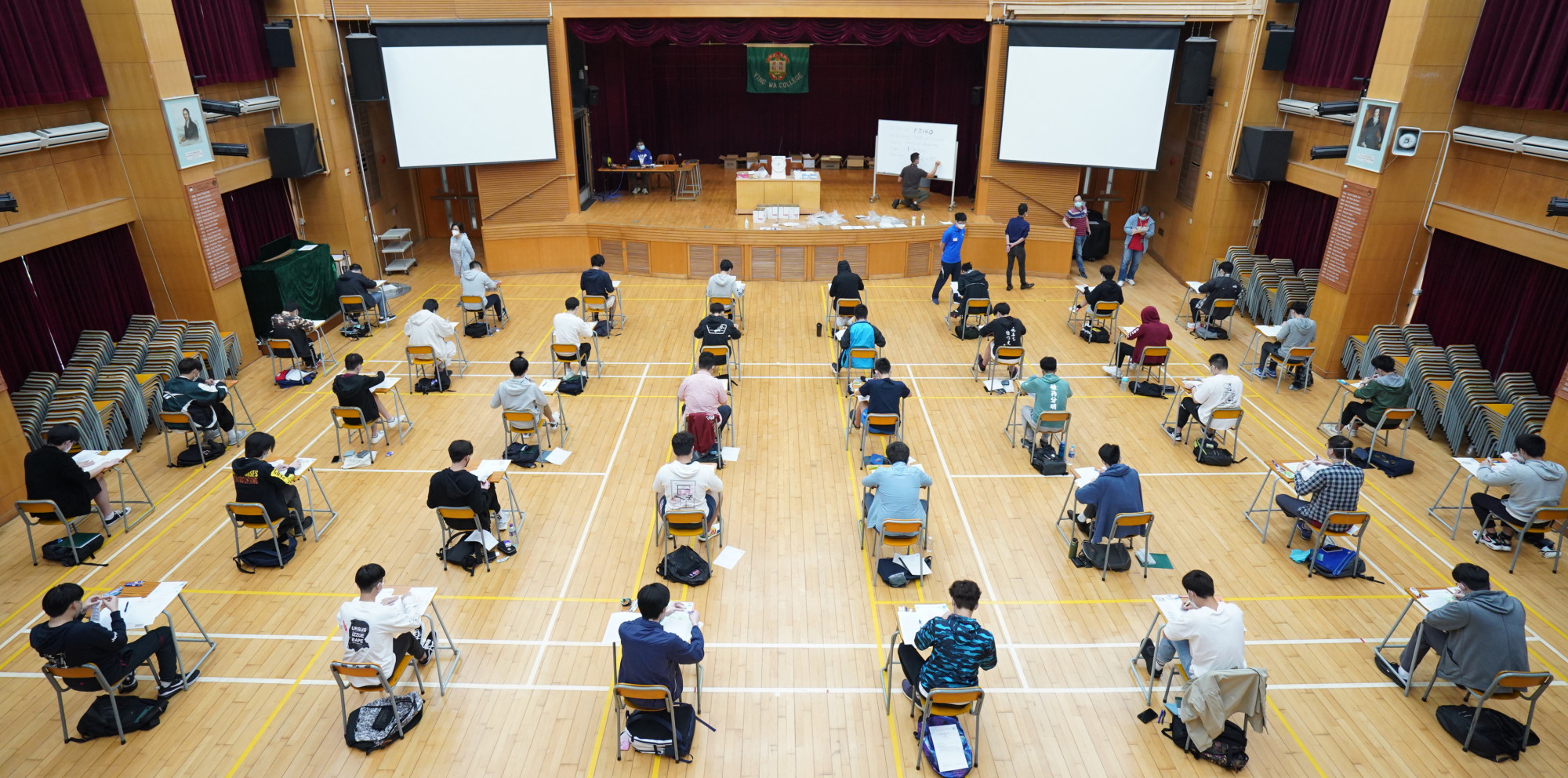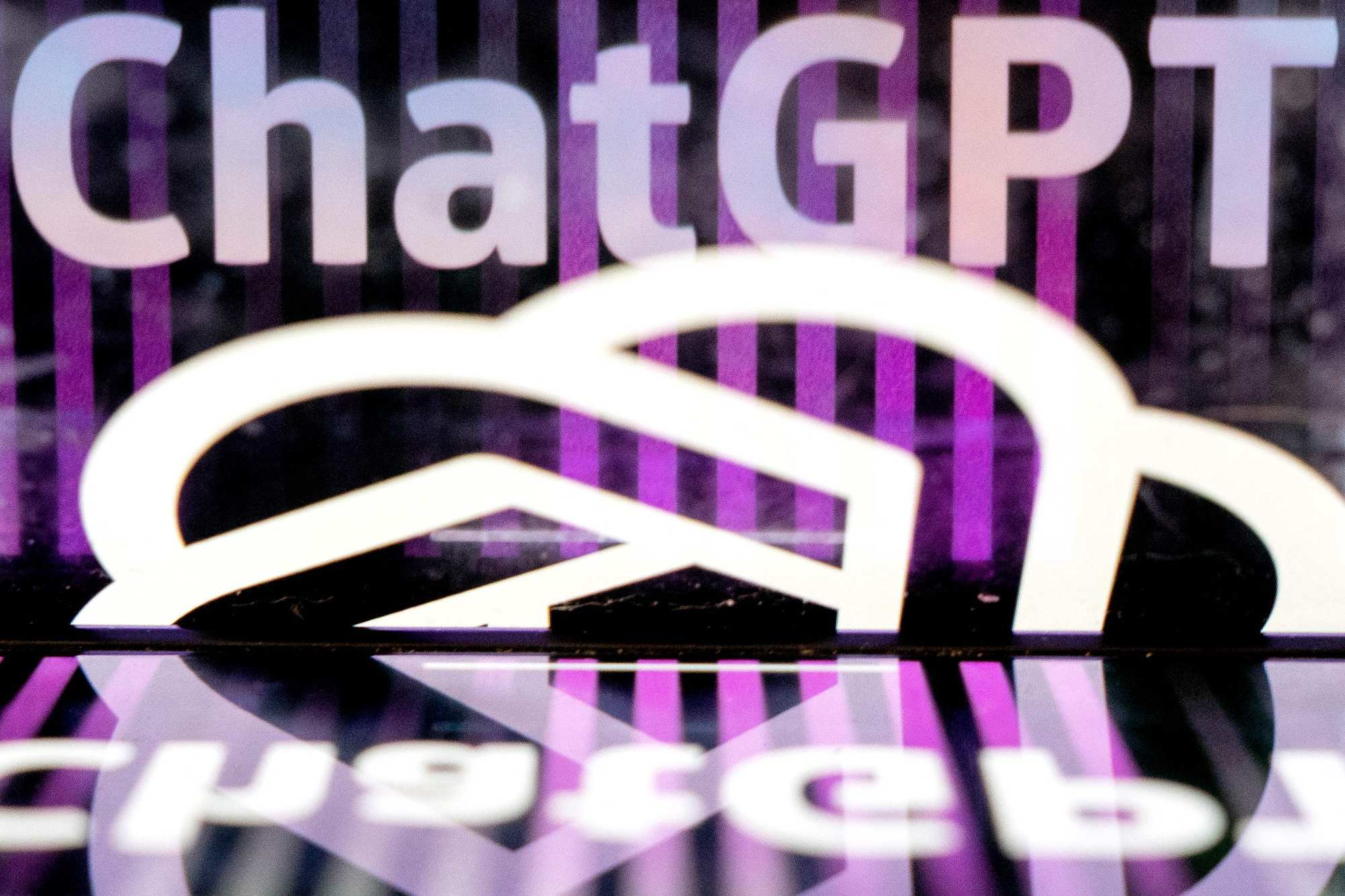
Who needs a teacher? As ChatGPT takes off in Hong Kong, educationists worry about impact on teaching, learning
- Experts are divided on merits of tech tool in education, with concerns about cheating and plagiarism
- ChatGPT is shaking up the education scene and experts say everyone must just come to terms with it
Hong Kong teenager Timothy Lee Chi-chung went online to get some help with his schoolwork.
In just two seconds, he was looking at a list of 19 multiple-choice questions.
“I wrote down my answers and asked ChatGPT to tell me how many I got right,” said the 16-year-old, who will sit the DSE examinations next year.

“It’s good enough that I have these free exercises in my pocket, it saves my parents a lot of money buying me supplementary exercise books.”
Unveiled last November by Microsoft-backed OpenAI, ChatGPT attracted 100 million users worldwide within two months, making it the fastest-growing consumer application in history.
Hong Kong users say ChatGPT is so fast, so good, but what about accuracy, ethics?
Its most ardent fans insist it can do everything – answer questions on practically any subject, write essays, compose poetry, tackle mathematical problems, resolve computer coding issues, and even provide speedy advice for personal problems.
Tech billionaire and Twitter owner Elon Musk greeted the news of ChatGPT’s arrival by tweeting: “It’s a new world. Goodbye homework!”
That highlighted the AI tool’s potential impact on education at every level, providing students an electronic helper to do their assignments, write school essays and churn out university research papers and theses in a flash.
Will ChatGPT replace me? Hong Kong reporter learns what chatbot can do
Academics who tested the tool said its responses to exam questions would get full marks if submitted by undergraduates.
But others have pointed out its limitations too.
The GPT in its name stands for “Generative Pre-Trained Transformer”, which means that despite its humanlike responses, the tech tool is programmed to draw mainly on information from the internet and other sources, currently limited to material available up to 2021.

ChatGPT can get things wrong, and owns up when errors are pointed out.
In Hong Kong, students, teachers and university professors have responded to the phenomenon with a mix of enthusiasm, admiration, scepticism and concern. Experts are divided, weighing its benefits as a new educational tool against its drawbacks, especially the threat of cheating and plagiarism.
Secondary school English language teacher Michelle Chan Yuk-fan said her biggest fear was that students would find ChatGPT so easy to use that they would switch off in the classroom.
“Reading and writing are essential in learning English. I’m worried that students will use AI tools to submit their homework and neglect their own growth and improvement academically,” said Chan, who teaches students in forms four to six.
Hong Kong aims to develop its own ChatGPT-like platform, technology chief says
She said that while her school came to grips with the rising popularity of ChatGPT, she would try as much as possible to give her students writing assignments that have to be completed in class.
“This way, I can ensure their writing is based on their knowledge and creativity and can step in if they encounter difficulties,” she said.
‘If you can’t beat them, join them’
Among Hong Kong’s institutions of higher learning, the University of Hong Kong (HKU) and Baptist University (HKBU) said they would consider it plagiarism if students used AI tools for their coursework and presented it as original work.
Chinese University (CUHK) said it would allow students to use AI tools “under authorisation” for their work, but they faced expulsion if caught using them improperly.
However, Hong Kong University of Science and Technology (HKUST) has gone all out to embrace ChatGPT, giving staff free rein to create their own guidelines for its use.

Professor Wang Yang, vice-president for institutional advancement, said banning ChatGPT in classrooms would be futile.
“We should explore ways to incorporate these technologies into the teaching and learning process by providing personalised and interactive learning content,” he said.
“If you can’t beat them, join them. These tools have the potential to enhance the educational experience significantly.”
He said people should find ways to adapt to the change by harnessing the potential of new AI tools while addressing their limitations.
HKUST provost Professor Guo Yike said that in the context of education, the essence of ChatGPT was whether students knew how to ask questions or give instructions to generate the best answers, rather than how AI could help them do their assignments.
2 universities in Hong Kong embrace use of ChatGPT, other AI tools
“We’re fully aware of problems like plagiarism and cheating,” he said. “The real challenge is not to find a way to forbid students from using AI or ban them from technology, but to change education and stimulate their critical thinking.”
He said tools such as ChatGPT could even transform the way examinations were conducted in future, with students tested on the questions they would ask rather than the answers they provided.
“I’ll ask you to give me the best questions because answers come from the machine,” he said. “It’s not about how to make machines dumb, but how to make humans smarter.”

‘Need to recognise threats, ethical issues’
HKU faculty of law associate professor Ryan Whalen, whose research interests include innovation policy and legal technology, said it was important for educators to adopt an open mind about the applications of future technologies, as an AI tool like ChatGPT could be useful in content production.
“It can help people do research to craft, particularly compelling paragraphs, but we need to make sure we’re still training students to do the critical thinking needed to use the tool critically, and not just rely on it,” he said.
“We need to train students to create compelling arguments, to be creative scientists, lawyers or humanists. But in future, that creativity is going to engage with AI, so we need to grapple with how to do that. It’s going to require training at the university level, and also at the secondary and primary school levels.”
Embrace ChatGPT or regulate it? That is the question for Hong Kong task force
Professor Eric Friginal, head of the department of English and communication at Polytechnic University, said safeguarding accuracy would be the biggest issue as new AI tools like ChatGPT were used.
“There are mistakes and the immediate and uncontrollable possibility of plagiarising information from tools like ChatGPT. You need to recognise the threats and ethical issues,” he said.
As an educator, he said, he wanted to understand the tool fully and the ways it could be used.
“Students submitting something that they didn’t write has never been good,” he said. “But with ChatGPT, it’s a little different because it’s technically writing something that the users input to the chatbot and creating something based on the user’s prompt. Human intervention is still needed.”
Hong Kong’s Baptist University bans students from using ChatGPT for class work
He said his publisher, Elsevier, a Dutch company specialising in scientific, technical and medical content, had already issued guidelines for authors about the role of ChatGPT or AI-based tools.
A company spokesman said such tools could be used to improve the readability and language of a research article, but not to replace key tasks that should be done by authors, such as interpreting data or drawing scientific conclusions.
“These tasks can only be attributed to and performed by humans,” the spokesman said.
“We ask authors to declare if and how they have used generative AI tools like ChatGPT. These technologies cannot be listed or cited as authors – who are ultimately responsible and accountable for the contents of their work.”
Hong Kong authorities have not yet weighed in on the impact of ChatGPT in education, but the government is planning to set up a task force to study if the new tech tools should be regulated through legislation.
Baidu’s ChatGPT alternative gets positive reviews for Chinese translations
“The special task force is a preliminary idea to deal with the opportunities and challenges brought about by AI-based revolutionary technologies such as ChatGPT,” a spokesman for the Innovation, Technology and Industry Bureau said. “We will continue to monitor the future development of relevant technologies and make appropriate responses.”
HKU law professor Whalen said it might be too soon to implement broad regulatory regimes on generative AI unless specific issues had to be addressed immediately.
“As an example, there’s apparently a subculture of producing pornographic materials but swapping the faces with someone else’s. That’s an emerging problem of AI use, and governments might want to have specific, narrowly tailored regulatory responses,” he said.
“It’s too early to try to craft a whole fulsome regulation that stipulates when and where it can and cannot be used, because we just don’t yet know the full universe of possible applications.”
As ChatGPT unveils latest model, Chinese AI developers worry about keeping up
Quora, a California-based social media platform with a question and answer format, has developed Poe, a chatbot partly powered by OpenAI, the technology behind ChatGPT.
Co-founder and CEO Adam D’Angelo told the Post that despite the controversy over aspects of the new AI tools, they were likely to have a transformative effect on knowledge-sharing and society.
“I can understand the challenges this creates in the short term for education, and for certain in-person tests I would expect that it should be disallowed similarly to how calculators might not be allowed,” he said.
“But I believe the right long-term solution for education, and for society more broadly, will be to allow it and make sure institutions adapt appropriately.”


